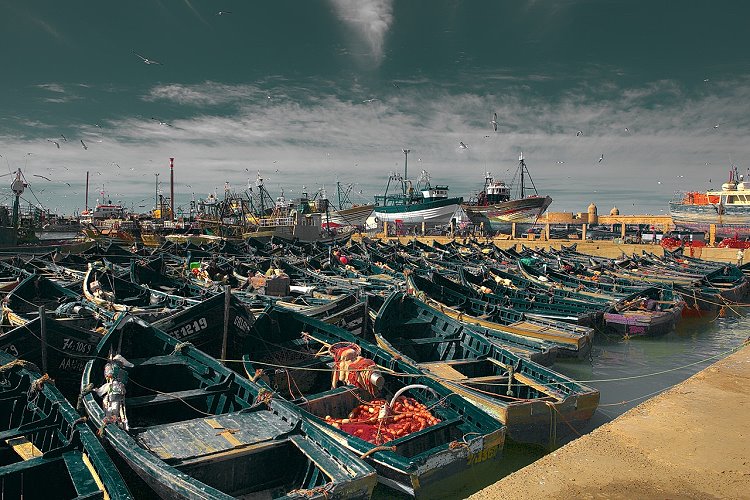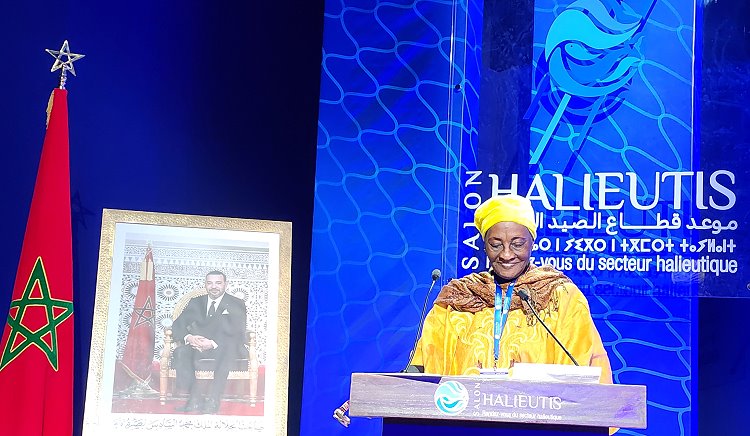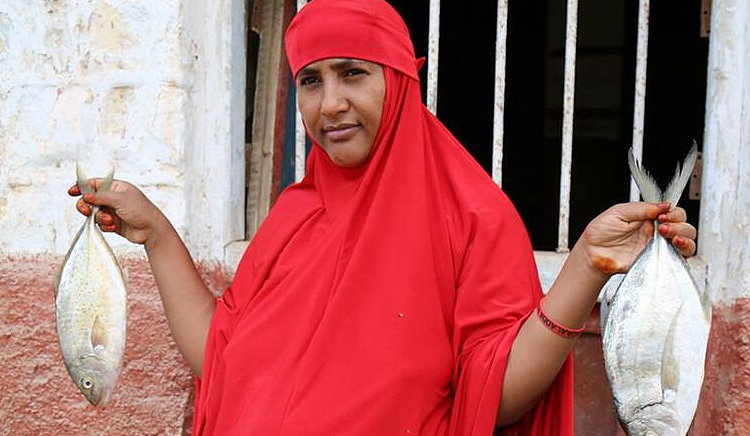The 7th Halieutis series of events in Agadir started on 1st of February 2025 with an International Exhibition complete with high-level Conference under the High Patronage of His Majesty, King Mohammed VI of Morocco. It continued from 5 to 7 February with a more scientific-technical conference which focused on “Research and Innovation for a Sustainable Fisheries Sector”.

Essaouira, Morocco, Claus in Pixabay
This second conference addressed some core concerns with the following objectives:
- Producing insights into improving marine ecosystem resilience: Climate impact research needs to help identify the most vulnerable species and habitats while developing adaptation strategies to already on-going climate change.
- Optimizing resource management e.g. through deployment of artificial intelligence (AI) and advanced technologies that should allow anticipating climate variations, monitoring fish stocks in real-time, and supporting sustainable exploitation.
- Developing sustainable alternatives: Technological innovation can pave the way for new materials, equipment, and processes with less environmental impacts, strengthening the circular economy, transforming production systems and enhancing the valorization of marine products.
- Encouraging sustainable aquaculture: Scientific advances in aquaculture, such as genetic improvements of species and optimization of production systems both on land and at sea, are crucial to meet the growing demand for marine protein while minimizing environmental impact.
Welcome and opening remarks were offered by Her Excellency Zakia Drioulch, Secretary of State to the Ministry of Agriculture, Marine Fisheries, Rural Development and Water and Fisheries, in charge of Marine Fisheries. She welcomed all speakers (20) and partipants (250) to Agadir and encouraged everyone to join in the process of improving the sustainability of the agricultural sector and fisheries in particular in the face of overfishing.
Next to take the microphone was His Excellency Sidi Tiemoko Toure, Minister for Animal and Fisheries Resources of Côte d’Ivoire and current President of the Ministerial Conference on Fisheries Cooperation between African States bordering the Atlantic Ocean (ATLAFCO, or COMHAFAT in French).
Dr AbdulHakim Elwaer, Assistant Director General and Regional FAO Representative for the Near East and North Africa, spoke briefly and in turn welcomed the speakers and participants. He emphasized that the conference should share research findings on the critical theme of the conference to advance improvements on the ground.
Several ministers and ambassadors from African countries also graced the opening ceremony.

Prof. Stella Williams of Mundus maris starting her keynote address
Stella Williams, Vice President of the international non-profit association ‘Mundus maris – Sciences and Arts for Sustainability’ then took the floor as the invited keynote speaker. The title of her intervention was ‘Building a Better Future for Fisheries: Collective Efforts and Fair Practices’. She addressed the audience with a talk that combined setting out the major connected global crises, like biodiversity loss largely driven by industrial fisheries, pollution and climate change. These translated also into serious social injustices. She devoted some of her time to then outline the responses through global level negotiations and landmark agreements.
Stella cautioned the audience that unless the admirable top-down governance efforts were combined with investment in addressing social challenges in an inclusive bottom-up process, the power of entrenched big-business interests had the capacity to derail the implementation of international agreements. That could already be seen in the lagging operationalisation of the Sustainable Development Goals (SDGs) and the net transfer of wealth from the Global South to the rich countries of the Global North.
Stella called on the governments to do much more to implement the landmark Voluntary Guidelines for Ensuring Sustainable Small-Scale Fisheries (SSF Guidelines) adopted by their representatives already in 2014 at the FAO’s Committee of Fisheries (COFI). In this context, it was crucial to recognise the important role of women, particularly in all land-based activities of the fisheries value chain.

She ended with some examples of efforts supported or driven by Mundus maris to make a difference for people on the ground. See the slides here.
At the end of the passionate keynote presentation, Dr AbdulHakim Elwaer walked up to the lectern congratulating Stella warmly for a great talk and suggested she should get in touch with him!
Particularly many of the young women in the room came to shake hands and thanked her for the inspiration, including two ladies from Senegal.
The conference continued with presentations and multiple exchange opportunities until its closure on 7 February.
The conference may be over, but now is the time for follow-up with continued and inclusive dialogue and the exploration of new collaborations!
